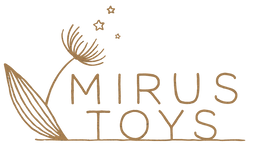The 20 Best Books for Montessori Parents, Caregivers, and Teachers

Perhaps you’re a parent or a caregiver wanting to learn more about Montessori to see if it’s a fit for your family. Maybe you’re considering taking the Montessori teacher training and want to learn a little more about the methodology. There’s a lot to learn about Montessori and so many amazing resources to help you do so! There are books about the basics of Montessori and how to implement them in the home setting, history and research-based books for those wondering about the efficacy of the pedagogy, and books by Dr. Maria Montessori herself.
Here is a list of the 20 best Montessori books for parents, caregivers, and teachers:
-
How to Raise an Amazing Child the Montessori Way, Second Edition by Tim Seldin

Seldin, President of the Montessori Foundation, presents a modern view of Dr. Montessori’s Method, offering tips to help parents and caregivers build independence, creativity, and confidence in their children. Packed with Montessori activities and educational games, this illustrated guide offers practical strategies for bringing the teachings of Montessori into the home. This updated version also includes sections discussing screen time, coparenting, and other family changes.
-
Montessori for Every Family: A Practical Guide to Living, Loving, and Learning by Tim Seldin and Lorna McGrath

Seldin partners with another directing member of the Montessori Foundation, Lorna McGrath, to introduce this modern approach to implementing the key principles of Montessori in the home. This practical parenting and caregiving guide inspired by the ethos of Montessori helps to make Montessori accessible to every family and every child despite challenges with time and resources. Even if a child is unable to attend a Montessori school, Seldin and McGrath offer approaches for introducing the wonder of Montessori in the home as a way to inspire a child’s natural curiosity and set the foundation for lifelong learning.
-
The Montessori Toddler by Simone Davies

One of the most popular Montessori books today, The Montessori Toddler provides a modern viewpoint with practical strategies for implementing Montessori in the home. Davies focuses more on clear, succinct tips and strategies that parents and caregivers can implement quickly and efficiently, rather than discussing the background or reasoning for these Montessori activities and approaches. The book has beautiful graphics and pictures to accompany Davies’ practical advice, making it an easy, enjoyable read.
-
The Montessori Baby by Simone Davies and Junnifa Uzodike

The prequel to Davies’ first book, The Montessori Baby offers the same modern viewpoint, providing clear, succinct guidance for parents and caregivers looking to implement Montessori in the home. The infographics, pictures, and activities make this an easy read with great advice for introducing Montessori during the first year of a child’s life.
-
Montessori at Home: A Practical Guide for Parents from Birth to Age 3 by Tara Greaney

This is a practical guide for parents and caregivers that provides easy-to-implement activities and tips for applying the Montessori Method at home with children ages 0-3. Its chronological format follows the age of the child as Greaney discusses the child’s development and ways to incorporate the Montessori philosophy.
-
Montessori: A Modern Approach, The Classic Introduction to Montessori for Parents and Teachers by Paula Polk Lillard

This is a great read to help parents, caregivers, and educators decide if Montessori education is right for your child, family, or classroom. Written from the perspective of a teacher and parent, it discusses the benefits of Montessori education and how the approach remains relevant.
-
Montessori Madness: A Parent to Parent Argument for Montessori Education by Trevor Eissler

Written by a Montessori parent, this book provides a practical look at the Montessori Method and how it compares to traditional approaches to education. It follows one family on their Montessori journey describing the who, what, when, where, why, and how of Montessori education.
-
Montessori: The Science Behind the Genius by Angeline Stoll Lillard

Lillard shares the science behind Dr. Montessori’s methods and how it works. She explains the long term benefits of Montessori pedagogy, making it a great read to share with partners, in-laws, and others who may be skeptical, questioning your Montessori lifestyle. Lillard also describes the differences between traditional education, “Montessomething,” and authentic Montessori education.
-
The Montessori Potential: How to Foster Independence, Respect, and Joy in Every Child by Paula Lillard Preschlack

Montessori education expert, Paula Lillard Preschlack, explains how the Montessori approach helps children learn key life skills such as innovation, resiliency, problem-solving, and collaboration. This is a great read for parents and future teachers who are curious about the correlation between the Montessori pedagogy and the development and strengthening of traits children need for adulthood.
-
Teaching Montessori in the Home: The Preschool Years by Elizabeth G. Hainstock

This is a must-read for parents and educators considering Montessori homeschooling. Hainstock discusses how to set up a Montessori homeschooling environment and how to introduce lessons for children ages two to five focusing on reading and writing, mathematics, sensory awareness, and practical life skills. There are even some descriptions of easy-to-make Montessori DIY materials!
-
Teaching Montessori in the Home: The School Years by Elizabeth G. Hainstock

A second in the series by Hainstock, this book focuses on adapting the Montessori Method for homeschooling. A great read for parents and educators considering this approach, Hainstock describes how to prepare the environment and introduce lessons for children ages six to twelve. She has also included the popular descriptions of some easy-to-make Montessori DIY materials for this age group.
-
Basic Montessori: Learning Activities for Under Fives by David Gettman

Gettman reveals a clear and modern explanation of Dr. Montessori’s methodology and her ideas about child development. He introduces a practical step-by-step guide to help parents, caregivers, and future teachers learn about the most common activities for children under five including reading, writing, counting, science, geography, sensorial exposure, and practical life experiences. Each section’s activities focus on traditional Montessori materials and lessons.
-
Montessori in the Classroom: A Teacher’s Account of How Children Really Learn by Paula Polk Lillard

Lillard shares a teacher’s account of what really happens in a Montessori classroom, how Montessori guides teach, and how children learn. This realistic record of a teacher’s year-long journey is a great read for future Montessori educators as it gives a fascinating day-by-day record of the Montessori Method in action.
-
The Absorbent Mind by Dr. Maria Montessori

This is probably one of the most popular books by Dr. Montessori. Within it, she analyzes the growth and development that takes place for a child during what she deems the most crucial period of their lives, from birth to six. The Absorbent Mind is a bit of a more complex read with dense material, but is fascinating, especially for those with an interest in psychology.
-
The Secret of Childhood by Dr. Maria Montessori

Dr. Montessori outlines the Montessori Method used in early childhood. She expresses how to unlock the secrets young children hold within themselves, helping adults learn how to observe and support their development. Dr. Montessori describes how to create a prepared environment, follow the child’s interests, and offer them choices to help them become capable and confident human beings.
-
The Discovery of the Child by Dr. Maria Montessori

This book explores education for children ages 3 to 6. Within it, Dr. Montessori describes the nature of the child and her method. Future Montessori educators will appreciate learning about the fundamental principles of the Montessori Method based on Dr. Montessori’s discoveries.
-
The Montessori Method by Dr. Maria Montessori

The Montessori Method is Dr. Montessori’s most complete account of the history, philosophy, and practice of her method. This book is an essential read for educators, parents, and caregivers looking to understand Dr. Montessori’s approach for children ages three to twelve.
-
Maria Montessori Speaks to Parents: A Selection of Articles by Dr. Maria Montessori

Dr. Montessori recognized the importance of the parent and caregiver’s role in the life of a child. In fact, she wrote lectures specifically intended for parents, introducing them to her vision. This is a collection of eleven of those lectures.
-
The 1946 London Lectures by Dr. Maria Montessori

This is a collection of lectures Dr. Montessori gave six years before her death. This book will help parents, caregivers, and teachers better understand human development through the eyes of a scientist and teacher who spent her lifetime studying children of all ages.
-
From Childhood to Adolescence by Dr. Maria Montessori

A great read for teachers interested in working with older children, this book reveals Dr. Montessori’s analysis of the needs of children ages 7 to 12. She discusses their passage to abstraction, their understanding of morals, the role of “going out” experiences, and cultural developments. She also introduces her ideal for the education of the adolescent and education at the university level.
Whether you’re a parent, caregiver, or educator, we hope you find these 20 best books about Montessori philosophy informative and inspirational.
About the Author
Heather White, EdS, is a Montessori parent coach, a Montessori in-home teacher and nanny, a Montessori educational consultant for the Andrew’s Educational Institute, a Montessori educator for adult learners, and a manager & content creator for Guide & Grow. Formerly, she was a Montessori teacher, Lower Elementary coordinator, and associate head of school. She also has experience as a School Psychologist intern. She is AMS credentialed (Early Childhood, Elementary I) and is a Nationally Certified School Psychologist. Contact her at hpratt@stetson.edu.
